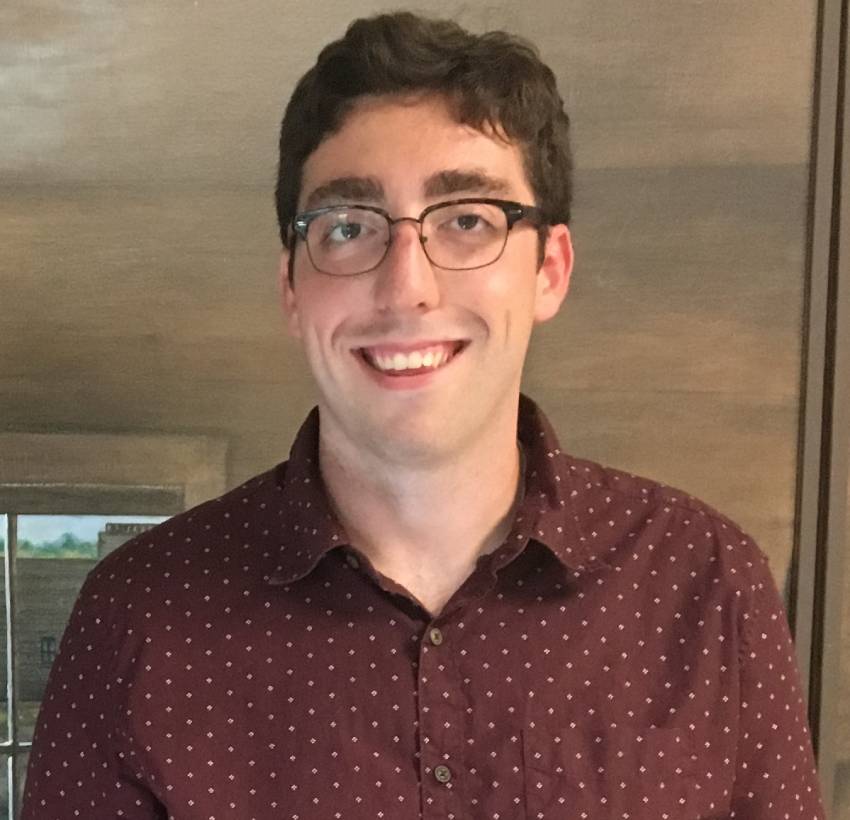Lauryn Abdo (BA in History, minor in Anthropology, 2011)
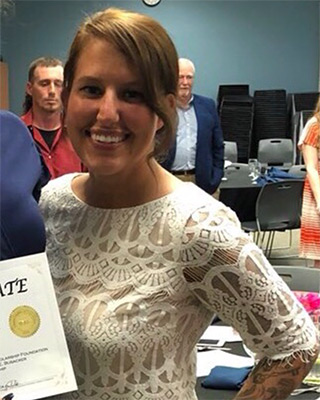
Why did you choose history as your major at SUNY Cortland? "In high school I loved history and wanted to pursue that love in college. When I visited Cortland my junior year, I knew I was going there for history and no where else (a notion that was sealed after I met Dr. Bhat). The faculty was so personable and passionate about what they did, I felt I could learn so much from them! The sense of family that the History Department has and develops with their students is unexplainable. They set their students up for success, help them to become professionals in their field, and develop relationships that extend beyond graduation."
How has your degree in history impacted your life and career(s)? "My degree in history laid a very solid foundation for my educational and professional career. I was able to fulfill my passion for history by volunteering at many local historical organizations. It also allowed me to develop skills and knowledge that I then carried on into my Masters degree and in my career as the School Counselor at Cortland High School. I attribute a lot of my knowledge to my history degree, especially my multicultural understandings, of which I learned from a worldly faculty."
If you could give current SUNY Cortland history students advice, what would it be? "Get involved! Join the History Club, volunteer, and make connections with other students and the faculty. Your time at Cortland will be amazing if you take advantage of everything the History Department has to offer you!"
Bill Beck (BA in History, 1974)
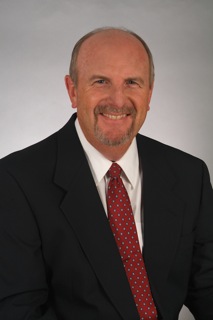
Why did you choose history as your major at SUNY Cortland? "I developed a passion for studying historical relevance to current geopolitics. A history degree offered the most attractive options for a bright, enthusiastic undergrad who was unsure of career direction. It would support pursuit of advanced degrees in political science, law or, in my case, a career in business. My career goal at the time was to become a high school social studies/history teacher. The ability to convey facts in a classroom and relate to a variety of students proved very fulfilling. SUNY Cortland had a proven reputation rated one of the finest history course studies and teaching certification programs in the northeast. Furthermore, it offered smaller class sizes to ensure quality faculty relationships and personal professional development."
How has your degree in history impacted your life and career(s)? "The teaching career path took a dramatic turn following graduation in 1974 when I was introduced to business. The placement office encouraged that I consider graduate business studies. I passed entrance exams and qualified for scholarship to pursue an MBA at SUNY Binghamton. Written and verbal communication skills developed at Cortland contributed significantly as I became part of the birth of the exciting computer technology boom of the 1970’s and 1980’s with leading companies that included Hewlett-Packard and Motorola. The history degree and teaching skills contributed to a highly technical industry where engineers and computer scientists were challenged to effectively communicate product benefits to business leaders. I was fortunate to have held a variety of marketing and sales leadership positions where the ability to teach and motivate teams was essential. A variety of successful startup companies complimented by career."
If you could give current SUNY Cortland history students advice, what would it be? "Pursue direction based upon specific career and lifestyle objectives. I am a lifelong student of success and strive to learn how others develop strategies and achieve goals. This always starts with writing short and long-term goals and reviewing them annually. My management mentor offered the following recommendations that I feel compelled to share. They have served me well throughout my life. (1) Be good at what you do and communicate what you know to others. (2) Let people know where you stand, be consistent, thoughtful, sincere and firm. (3) Do your homework, state issues and alternatives and make a recommendation.
Robert Bookman (History degree, 1976)
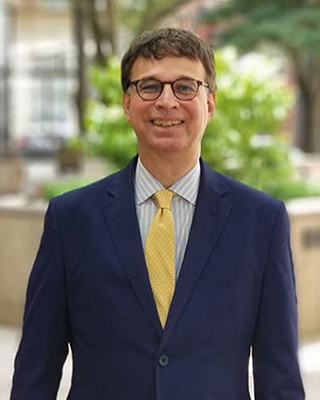
Why did you choose history as your major at SUNY Cortland? "I started out as a Political Science Major (and did eventual minor in that) but as I took some history classes in my Freshman and Sophomore years, I realized that history was where my true interest was. So I switched. Classes in the American Presidency, Early Jewish History, the Civil War, U.S. Labor Movement History...were fascinating to me. I was learning so much more than I had in High School...and being challenged by an excellent faculty every step of the way."
How has your degree in history impacted your life and career(s)? "I knew I wanted to become a lawyer...and directly after Cortland did just that. While I did not realize it at the time I switched major's to History, it was the best pre-law move I could have made. All of the qualities needed to be a good lawyer...analytical thinking, knowing how to research, processing a large quantity of reading, and finally, excellent writing skills (exam essays and papers)....are required of and learned as a History Major. It made the transition to Law School effortless for me. I credit that decision in helping me be a successful lawyer 40 years later."
If you could give current SUNY Cortland history students advice, what would it be? "As an engaged citizen, it is incumbent upon you to be well informed. That is especially true today when all sorts of outrageous and untrue statements of alleged fact are made in support of dubious political positions. You cannot have an informed position about 'building a wall' without knowing about our history as a beacon of immigration. You cannot understand income disparity arguments, without knowing U.S. Labor history. You cannot know what to think about current trends toward isolationism and 'U.S. First' without knowing about World War II and the success of the postwar alliances that were formed. And you certainly cannot form an educated opinion about so called 'entitlements' without learning about the New Deal and the Great Society. All of this you will learn as a History Major. It will make you a better citizen the rest of your life."
Christopher Carey (BA in History, 2018)
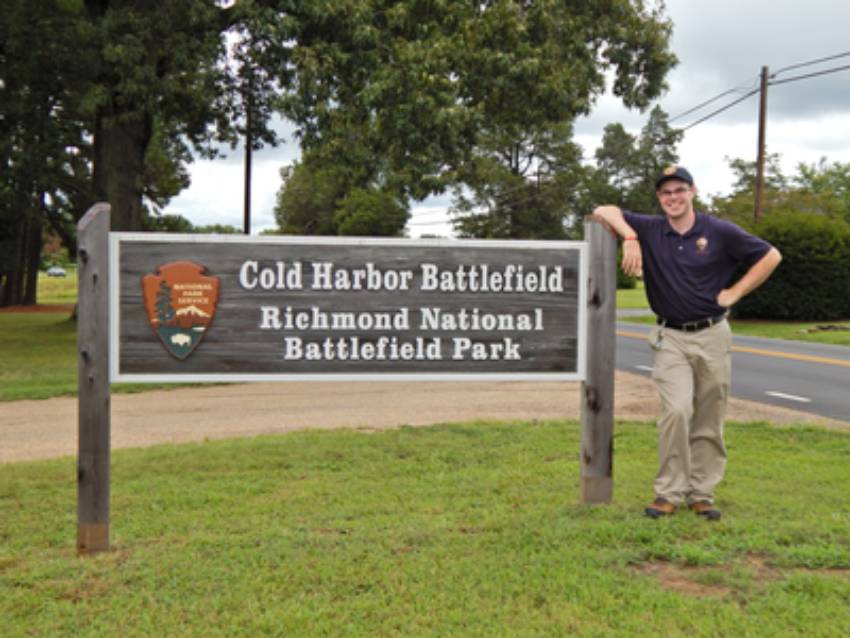
Why did you choose history as your major at SUNY Cortland? "I had two professors at SUNY Broome who helped me realize that I wanted to earn my B.A. in history. I originally considered Cortland because it was local to me, but as I talked to others and did my research I discovered that Cortland had an outstanding history program and that point solidified my decision to apply and enroll. The small class sizes helped my decision too! It helps a student a lot to be able to connect with the professors and forge lasting friendships with their classmates."
How has your degree in history impacted your life and career(s)? "When I first became a college student in 2014 I had no idea what I wanted to do. I first planned on just getting my Liberal Arts A.A. and figuring out the rest later. When I finally decided to continue my education as a history major, I had no idea what I would do with it, but I was determined to find something. While at Cortland I discovered an interest in public history and rediscovered my love of the National Park Service, realizing that I could combine the two and have a career with the NPS as a Park Ranger at a historic site. Now I am graduate student at the Cooperstown Graduate Program pursuing my masters degree in Museum Studies as one of my first steps in becoming an NPS historical interpreter."
If you could give current SUNY Cortland history students advice, what would it be? "Join the history club! I didn't join until my last year at Cortland and I regret it dearly. The fellow students you meet will quickly become your second family and be there with you through good times and long nights writing that research paper you've put off all semester. Also, you don't have to find your niche in the history world right away either. Enjoy your time at Cortland, ask questions, intern once or twice. I can't promise you will find something, because something almost always finds you first."
Pete Dohan (BA in History, 2016)
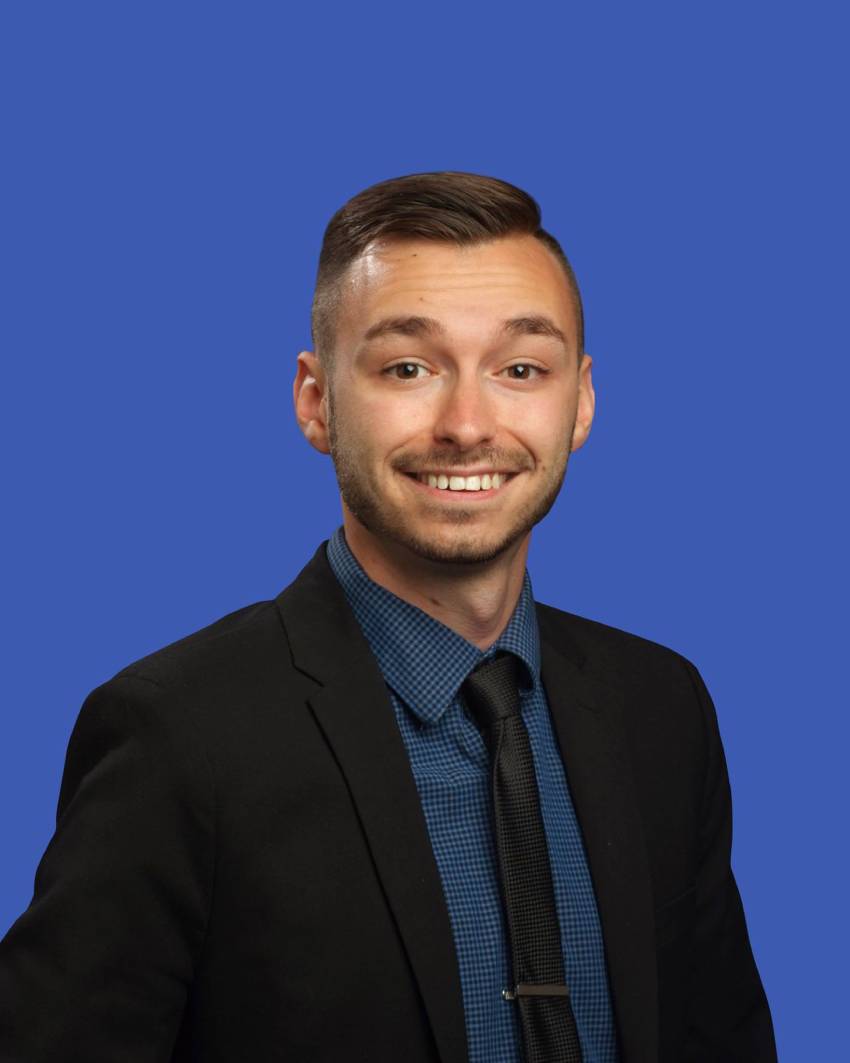
Why did you choose history as your major at SUNY Cortland? "History was always a passion of mine, starting at a young age I was fascinated by the similarities and differences of people around the world that may have not even had contact with each other and how those interactions shape the world we live in today."
How has your degree in history impacted your life and career(s)? "Being a History major opened up the doors to so many opportunities; I quickly learned it is more than Names and Dates, and you intersect so many different components of a time period, culture, or geographical location. Your coursework will teach you how to critically think through not only academic situations, but will also roll over into your daily life decisions that you make. This degree has helped my career in politics tremendously through my studies of American History. I'm based in Washington D.C. and currently sit as the Program Manager of Affiliate & External Affairs at the National LGBT Chamber of Commerce. As a member of the Affiliate & External Affairs Team, I serve as the liaison between NGLCC and the local Affiliate Chambers across the country and provide support for NGLCC’s public policy and political affairs efforts both nationally and locally."
If you could give current SUNY Cortland history students advice, what would it be? "To my young Red Dragon Historians, your degree in History will give you skills you never thought you’d obtain in college and ample amounts of opportunities will open for you with your degree in History you never may have thought existed. Keep your eyes, ears and mind open, and your degree in History will set you up for a life full of happiness, success, and prosperity. Remember that without History, humans would never learn how to adapt and evolve into better ways of thinking, governing and teaching."
Meg Hutchins (Dual Major in History and Adolescence Education: Social Studies, 2013)
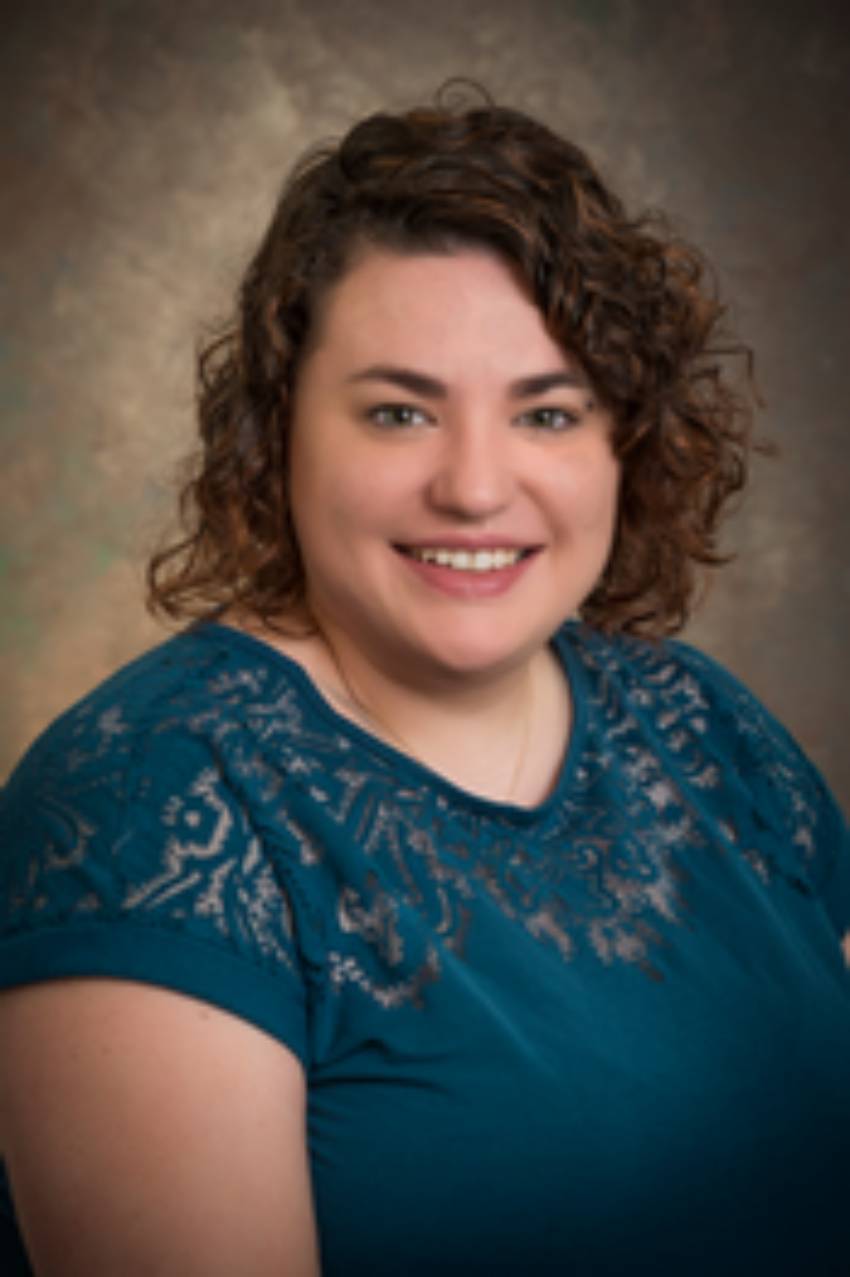
Why did you choose history as your major at SUNY Cortland? "I chose to study history at Cortland because it was clear that the department strived to train historians that cared about the world around them. Whether you were planning to teach or not, they wanted each student to learn to think critically about the world and put themselves in the context of history. To not only be in awe of the past but use it to think critically of the future. Additionally, the staff and faculty in the department were so warm and welcoming, I walked out of the office on my first visit thinking, “This is where I need to be. These are people that will get me.” And lucky for me, that never changed."
How has your degree in history impacted your life and career(s)? "While my path after Cortland was not typical, it was greatly shaped by my degree in history. After graduating, I attended the University of Delaware where I received an MA in Historic Preservation and a graduate certificate in Museum Studies. My degree in history from Cortland was a huge advantage in my program because I had learned the skills to research and think critically about history in a way many of my classmates did not. Also, the introduction of material culture in many of the classes helped shape me as a historian intent on using artifacts as a means of storytelling. Today, I work to educate students at the University of Delaware and help cultural institutions become stronger members of society. All of what I do stands on the bedrock of knowledge and strength I gained from the History Department at Cortland."
If you could give current SUNY Cortland history students advice, what would it be? "My advice to students, whether you want to teach or not, try to intern at a museum or cultural institution. Sometimes sitting in classes we can lose an understanding of how the world interacts with history. Getting the chance at a hands on experience with history can change not only how you see the world but give you a fuller understanding on how to translate your knowledge to the public. And who doesn’t like getting to interact with history up close and personal? Additionally, if you can, find a faculty member in the department you connect with. As a student, I knew my path laid outside of secondary education but I did not know how to get there. Getting advise and support from faculty and staff in the department gave me confidence to pursue my dreams. It is department full of wonderful and brilliant people all ready to help you achieve your goals. Take advantage of that!"
Megan Payne (BA in History, 2017)

Why did you choose history as your major at SUNY Cortland? "History has always been a passion of mine, dating back to when I was in middle school, so it was a field of study that had always been on my radar when I had to begin applying to colleges. However, it wasn’t until I toured SUNY Cortland’s campus on accepted students day that I knew history would be the best major for me. I remember talking to Dr. Storch about the history program that day, and it made me realize that there are so many career paths one can choose to pursue with a history degree beyond the world of academia and teaching. I am now an aspiring archivist pursuing a Master’s degree in Museum Administration, and I don’t think I would be on this path if I hadn’t decided to major in history as an undergraduate."
How has your degree in history impacted your life and career(s)? "I can honestly say that pursuing a history degree at SUNY Cortland was one of the best decisions I’ve ever made. It developed my writing skills and critical analysis/thinking skills more than I ever thought possible. I have felt very comfortable completing many different writing assignments, research projects, and oral presentations throughout my time in graduate school because of the practice I had during my time as a history student at SUNY Cortland. My public history internship experiences that I had during my time at Cortland also helped me a great deal to prepare to execute tasks during an internship I had this past summer in the archives at the Albright-Knox Art Gallery."
If you could give current SUNY Cortland history students advice, what would it be? "If I could give a current SUNY Cortland student advice, I would strongly encourage them to try to fit in a study abroad program into their schedule before they graduate. I studied at Fulda University in Germany during the Winter 2017 session. Not only did I learn so much about the history and culture of Germany, but also met so many incredible people from all walks of life, many of whom I still talk to on a regular basis almost two years later. It will always stick out to me as one of, if not the best experience I had in college. SUNY Cortland’s International Programs Office offers such a wide variety of programs to its students, so there is definitely something available for everyone!"
Derrick Pratt (Dual Major in History and Adolescence Education: Social Studies, 2016)
Why did you choose history as your major at SUNY Cortland? "I chose history as my major because for as long as I can remember I have had an overwhelming passion for history. Pursuing a dual degree in history and social studies education allowed me a way to share that passion with others while also delving deeper into areas of history that interest me."
How has your degree in history impacted your life and career(s)? "My degree has had an incredible impact on my life, which I cannot understate. Professionally it has led me into an absolutely incredible career in museums, directing programs and education at Chittenango Landing Canal Boat Museum, a job that I never expected but which has completely changed my life. In my position I have found a job that allows me to put my passion to practical use, travel the county, meet wonderful people from across the globe, and help to develop a vibrant tourist destination in my hometown. None of this would have been possible without the training I gained at SUNY Cortland in the history department."
If you could give current SUNY Cortland history students advice, what would it be? "If I could give current students advice it would be do what you love and have fun doing it. Take it easy, but take it."
Kyle Rogers (Dual Major in History and Adolescence Education: Social Studies, 2008)
Why did you choose history as your major at SUNY Cortland? "I chose history and education because of the impact two people had on my life. My father’s ideas of “vacations” growing up would be going to Gettysburg, or the Smithsonian, so being able to see where history occurred, and artifacts from history had an early impact on my life. Also, my 11th grade APUSH teacher, Mr. Hettrich at Sachem High School was universally loved by his students. He made the subject come to life by knowing the smallest details of everything he taught us. He also kept a huge personal library in his classroom where you could take a book at any time and return it when you were done. His goal was to make us not just understand the subject, but why history impacts our lives on a daily basis. He passed away about 2 months before I was supposed to student teach for him, and I spent my time as a teacher trying to emulate his passion with each class I was fortunate to have."
How has your degree in history impacted your life and career(s)? "Even though I left teaching in 2014, I still have a passion for the subject. My coworkers at Northwestern Mutual constantly rib me for my “hey, you know what happened today?” questions and constant book recommendations, but at the end of the day it usually ends in a fun conversation about something they didn’t know about. I also believe that the courses I studied at Cortland, which I sometimes was less interested in, has led me to be a person who is open to diverse opinions and attitudes, which leads to great conversations and understanding people’s point of view."
If you could give current SUNY Cortland history students advice, what would it be? "History is so diverse, you can study cultures, time periods, nations, religions, whatever your passion is, and I think that’s what makes history such a wonderful field of study. If you’re planning on becoming an educator, make sure your students understand the how and why. Textbooks are boring, it’s your job to make history about more than just dates and names. Students are excellent judges of character, if you don’t know something, admit it, but tell them you’ll find out before your next class with them. Encourage your students to volunteer, not just to boost their college resume, but to better themselves, and don’t be afraid to challenge them. If you can get them to leave their comfort zone by presenting in front of their class, or joining an organization that helps people locally, they’ll never forget you. Lastly, stand by your gradebook. Don’t let parents or administration cajole you into giving a grade because you’d be doing the student a disservice."
Taylor Weigand (Dual Major in History and Adolescence Education: Social Studies, 2010)
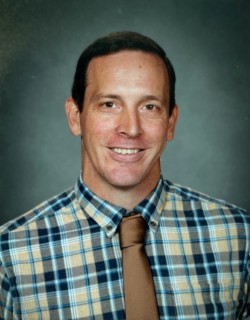 History Department alumnus Taylor Weigand, who teaches at Binghamton High School, received the 2024 Yale Educator Award in recognition of his efforts to support and inspire student achievement. Taylor was one of only 75 teachers in the United States to receive this distinction.
History Department alumnus Taylor Weigand, who teaches at Binghamton High School, received the 2024 Yale Educator Award in recognition of his efforts to support and inspire student achievement. Taylor was one of only 75 teachers in the United States to receive this distinction.
“I am deeply honored to receive the Yale Educator Award, especially knowing it came from a student’s nomination,” Taylor said, “as it affirms the impact we strive to have as educators. It also allows me to express my gratitude for the individuals and institutions, like SUNY Cortland and its History department, that shaped me both academically and professionally. This award is a reflection of the support and inspiration I’ve been fortunate to receive throughout my journey.”
In addition to his current teaching obligations at Binghamton High School, Taylor also collaborated with history department faculty member Dr. Gigi Peterson who leads an international summer school in Potsdam, Germany. Peterson recruited Taylor and fellow alumna Caitlin Goodwin (who now teaches at Cortland Junior/Senior High School) to participate in the summer institute. “I had the delight of co-teaching and sightseeing with them,” Peterson said, “and the German faculty and teacher candidates were impressed and grateful for their ‘real world’ insights and obvious care for students. It is no surprise that Taylor’s talents and dedication are recognized with his 2024 Yale Educator Award.”
Peterson notes that Taylor has remained an important resource for the department’s successful dual major in Adolescence Education in Social Studies and History (SST). “Over the years he has supported the SST program by speaking in classes, hosting teacher candidates, and staying in touch—including to report on the awards earned by other alumni,” she said. “He mentored student teachers who won top awards, as he did. We enjoyed many conversations about teaching, history, travel, and life, and I came to appreciate Taylor as a friend and source of inspiration. He exudes a quiet steadiness that, along with his many other qualities, encourages his students and colleagues.”
Congratulations Taylor!
